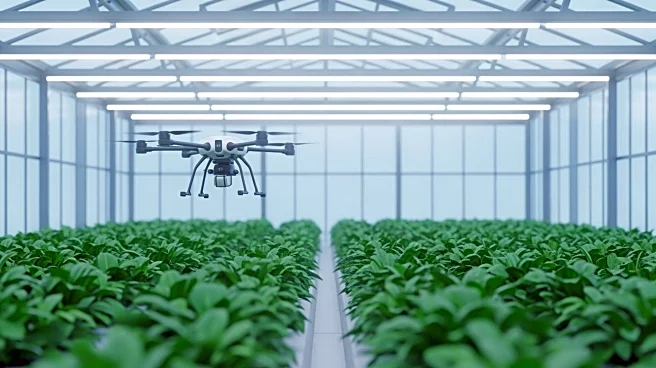What's Happening?
Po Bronson, a general partner at SOSV and managing director at IndieBio SF, has shared insights on navigating the current downturn in agrifoodtech venture funding. Despite a challenging funding environment, Bronson emphasizes that companies demonstrating
strong performance are still able to secure investments. He highlights the importance of finding alternative sources of capital beyond traditional venture capital, such as private wealth and sovereign wealth funds. Bronson also discusses the role of corporates and governments in shaping the future of agrifood innovation, noting that corporates are increasingly involved in investment rounds and partnerships. He stresses the need for startups to focus on earning their valuations through revenue generation rather than relying solely on venture capital.
Why It's Important?
The insights provided by Po Bronson are significant as they highlight the evolving landscape of venture funding in the agrifoodtech sector. With traditional venture capital becoming more selective, startups are encouraged to explore diverse funding sources to sustain growth. This shift could lead to a more resilient and diversified investment ecosystem, potentially benefiting companies that can demonstrate tangible results and customer traction. The involvement of corporates and governments could also provide stability and long-term support for innovative agrifood technologies. This development is crucial for the U.S. agrifood industry, which is seeking sustainable solutions to meet growing demands and environmental challenges.
What's Next?
As the agrifoodtech sector adapts to the current funding climate, startups may increasingly seek partnerships with corporates and explore government-backed initiatives to secure necessary capital. Investors like Bronson are likely to continue advocating for a focus on revenue and customer engagement as key metrics for investment. The sector may also see a rise in innovative funding models, such as joint ventures and royalty structures, to support the commercialization of new technologies. Stakeholders will need to remain agile and open to new investment strategies to navigate the ongoing challenges and opportunities in the agrifoodtech landscape.
Beyond the Headlines
The current shift in agrifoodtech investment strategies may have broader implications for the industry, including a potential reevaluation of how success is measured. As startups prioritize revenue and customer traction, there could be a move away from traditional valuation metrics, leading to more sustainable business models. Additionally, the increased role of corporates and governments in funding could drive more collaborative approaches to innovation, fostering a culture of shared risk and reward. This could ultimately lead to more robust and scalable solutions to address global food security and sustainability challenges.















